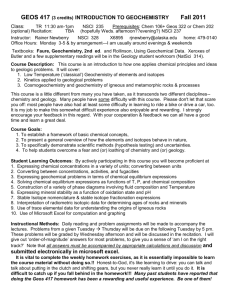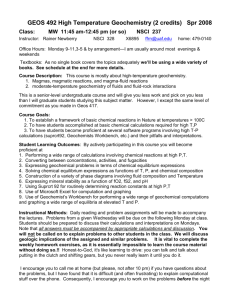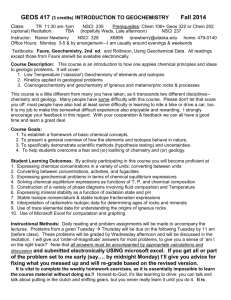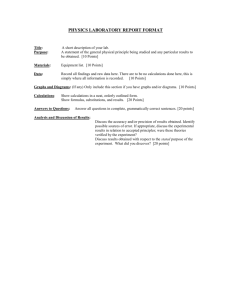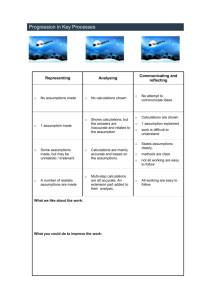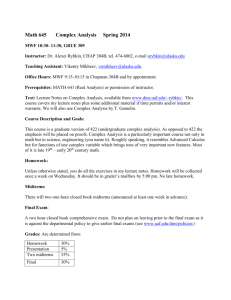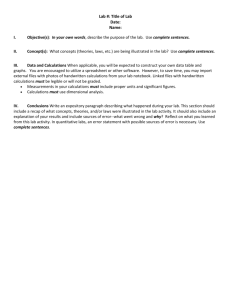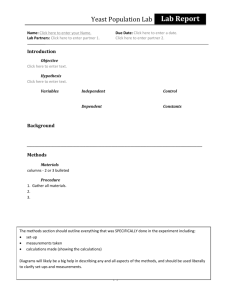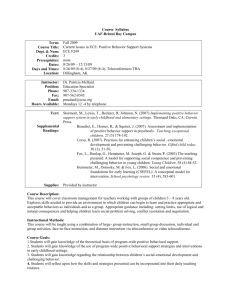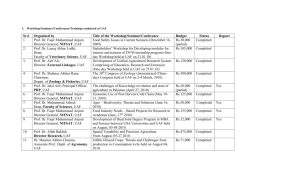GEOS 417 INTRODUCTION TO GEOCHEMISTRY Fall 1995
advertisement
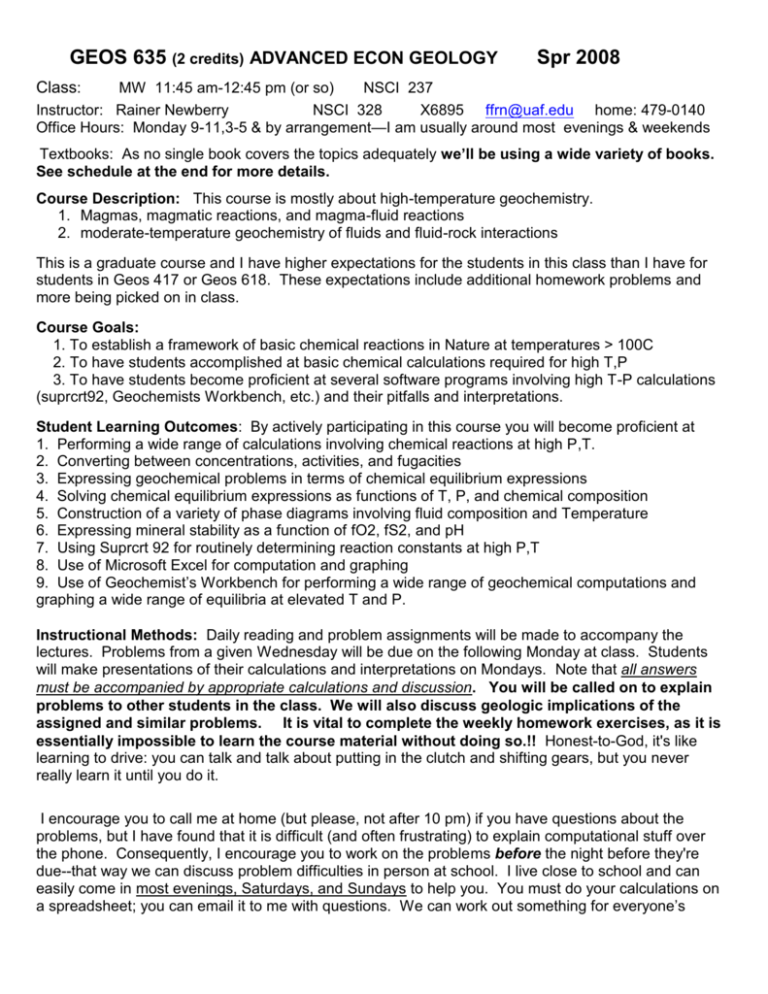
GEOS 635 (2 credits) ADVANCED ECON GEOLOGY Class: MW 11:45 am-12:45 pm (or so) Spr 2008 NSCI 237 Instructor: Rainer Newberry NSCI 328 X6895 ffrn@uaf.edu home: 479-0140 Office Hours: Monday 9-11,3-5 & by arrangement—I am usually around most evenings & weekends Textbooks: As no single book covers the topics adequately we’ll be using a wide variety of books. See schedule at the end for more details. Course Description: This course is mostly about high-temperature geochemistry. 1. Magmas, magmatic reactions, and magma-fluid reactions 2. moderate-temperature geochemistry of fluids and fluid-rock interactions This is a graduate course and I have higher expectations for the students in this class than I have for students in Geos 417 or Geos 618. These expectations include additional homework problems and more being picked on in class. Course Goals: 1. To establish a framework of basic chemical reactions in Nature at temperatures > 100C 2. To have students accomplished at basic chemical calculations required for high T,P 3. To have students become proficient at several software programs involving high T-P calculations (suprcrt92, Geochemists Workbench, etc.) and their pitfalls and interpretations. Student Learning Outcomes: By actively participating in this course you will become proficient at 1. Performing a wide range of calculations involving chemical reactions at high P,T. 2. Converting between concentrations, activities, and fugacities 3. Expressing geochemical problems in terms of chemical equilibrium expressions 4. Solving chemical equilibrium expressions as functions of T, P, and chemical composition 5. Construction of a variety of phase diagrams involving fluid composition and Temperature 6. Expressing mineral stability as a function of fO2, fS2, and pH 7. Using Suprcrt 92 for routinely determining reaction constants at high P,T 8. Use of Microsoft Excel for computation and graphing 9. Use of Geochemist’s Workbench for performing a wide range of geochemical computations and graphing a wide range of equilibria at elevated T and P. Instructional Methods: Daily reading and problem assignments will be made to accompany the lectures. Problems from a given Wednesday will be due on the following Monday at class. Students will make presentations of their calculations and interpretations on Mondays. Note that all answers must be accompanied by appropriate calculations and discussion. You will be called on to explain problems to other students in the class. We will also discuss geologic implications of the assigned and similar problems. It is vital to complete the weekly homework exercises, as it is essentially impossible to learn the course material without doing so.!! Honest-to-God, it's like learning to drive: you can talk and talk about putting in the clutch and shifting gears, but you never really learn it until you do it. I encourage you to call me at home (but please, not after 10 pm) if you have questions about the problems, but I have found that it is difficult (and often frustrating) to explain computational stuff over the phone. Consequently, I encourage you to work on the problems before the night before they're due--that way we can discuss problem difficulties in person at school. I live close to school and can easily come in most evenings, Saturdays, and Sundays to help you. You must do your calculations on a spreadsheet; you can email it to me with questions. We can work out something for everyone’s needs; the critical objective is to set aside time well before Monday for homework and to call for help when you need it. Course Policies: Naturally, I would like you to attend class and to show up on time. If you know you will miss a class, let me know and I will give or email you the lecture notes and assignments. As routine completion of problem sets is essential to understanding the material in this course, I will submit an instructor-designated drop if you are missing more than 2 assignments by the 5 th week of classes. I also reserve the right to dock points for severely late problem sets. Formation of regular study groups has helped many students in past years—but be sure to do your own work. Evaluation: The course grade is based entirely on the weekly problems sets. Final grades will be normalized to the highest point total among students in the class. A point total within 93% of this will be an A, 90-93 = A-, 90-87 = B+, 87-83= B, 83-80 = B- , 77-80 = C+, 77-73 = C, 73-70 = C-, 70-67= D+, 67-63 = D, 63-60 = D-, < 60% = F. Support Services: Ability to rapidly and reliably perform algebraic operations (equation manipulation, logs, antilogs, exponentials) is critical to geochemical calculations. I highly recommend you consider the Math Lab (305 Chapman), which provides excellent advice, tutoring and assistance, if you have problems with the algebra in this class. Also consider the Office of Student Support Services (508 Gruening, 474-6844) if you find the Math Lab unsatisfactory. Disabilities Services: The Office of Disability Services implements the Americans with Disabilities Act (ADA), and insures that UAF students have equal access to the campus and course materials. UAF is committed to equal opportunity for all students. If you have a documented disability, please let me know within the first two weeks of class, and I will work with the Office of Disabilities Services to make the appropriate accommodation. If you have a specific undocumented physical, psychiatric or learning disability, you will benefit greatly by providing documentation of your disability to Disability Services in the Center for Health and Counseling, 474-7043, TTY 474-7045. If you are the first in your family to attempt a four-year college degree, and/or eligible for Pell grants, you have opportunities for tutorial and other forms of support from the office of Student Support Services. I will collaborate with the Office of Disabilities and/or the Office of Student Support Services to make your educational experience in my class as positive as possible. Check the following website for further information. http://www.uaf.edu/advising/learningresource
